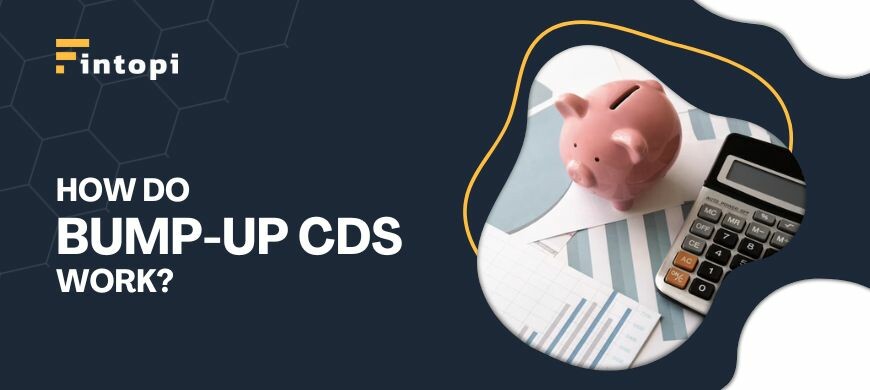Discover the Best Bump-Up CDs for Your Savings Goals
If you’re looking for a secure way to save money and earn interest, a bump-up CD might be the solution. Unlike traditional CDs, bump-up CDs allow you to “bump up” your interest rate during the term of the CD. This means that if interest rates rise, you can take advantage of the higher rates without having to open a new CD.
In this article, we’ll explore how bump-up CDs work, the best options available, and the fees associated with these accounts.
What Are Bump-Up CDs?
A bump-up CD is a type of CD that allows you to increase your interest rate during its term. Bump-up CDs let you benefit from rising interest rates without taking stock market risks.
Bump-up CDs typically have a fixed interest rate for a specific term, such as 12 months, 24 months, or 36 months. However, the interest rate can be increased one or more times during the term of the CD.
How Do Bump-Up CDs Work?
Bump-up CDs work similarly to traditional CDs. You deposit money into the account, and the bank or credit union agrees to pay you a fixed interest rate for a specific term.
However, with a bump-up CD, you can increase your interest rate if market interest rates rise. Depending on the financial institution, you can only bump up your interest rate once or twice over the CD’s term.
Best Bump-Up CDs
When choosing a bump-up CD, it’s essential to consider the interest rate, term length, and minimum deposit required. Here are some of the best options available:
- Ally Bank – Offers a 2.10% APY for a 48-month bump-up CD with a minimum deposit of $25,000.|
- CIT Bank – Offers a 1.75% APY for a 48-month bump-up CD with a minimum deposit of $1,000.
- Capital One 360 – Offers a 1.60% APY for a 60-month bump-up CD with no minimum deposit.
Fees on Bump-Up CDs
Like other CDs, bump-up CDs may have fees associated with them. These fees can include early withdrawal penalties, which can be significant if you withdraw funds before the end of the CD’s term.
It’s crucial to read the terms and conditions carefully before investing in a bump-up CD to understand any potential fees or penalties. Some financial institutions may also charge fees for bumping up your interest rate. These fees can be a percentage of the increased interest rate or a flat fee.
How Rising Bank Rates Affect Your Bump-Up CD Investments
When market interest rates rise, the interest rate on bump-up CDs will also increase, allowing investors to earn more on their savings. However, rising interest rates may also lead to inflation, which can erode the purchasing power of your savings. When buying a bump-up CD, make sure the interest rate exceeds inflation.
Additionally, rising interest rates may make other savings options more attractive, such as high-yield savings accounts or money market accounts. It’s crucial to compare these options’ interest rates and terms before investing in a bump-up CD to ensure that it’s the best option for your savings goals.
Conclusion
Bump-up CDs are an attractive option for savers who want to earn a higher interest rate on their savings without the risks associated with the stock market. With the ability to “bump up” the interest rate during the CD’s term, savers can take advantage of rising interest rates and earn more on their investments.
Furthermore, to choose a bump-up CD, compare rates, terms, and fees from various institutions and read the terms carefully.
Overall, bump-up CDs can be an effective way to save for short- and medium-term financial goals. They offer a guaranteed return on investment, and the ability to bump the interest rate can help savers take advantage of rising interest rates. However, it’s important to evaluate these accounts’ fees and penalties and inflation’s influence on savings.
FAQs
Q: Are bump-up CDs FDIC insured?
A: Yes, most bump-up CDs offered by banks and credit unions are FDIC insured up to $250,000 per depositor.
Q: Can I withdraw funds from a bump-up CD before the end of the term?
A: Yes, but you may be subject to early withdrawal penalties, which can be significant.
Q: What happens if I bump up my interest rate and then interest rates drop?
A: Once you bump up your interest rate, the new rate will apply for the remainder of the term.
Q: How do I choose the best bump-up CD for my savings goals?
A: When choosing a bump-up CD, it’s important to consider the interest rate, term length, minimum deposit requirement, and any potential fees or penalties.



